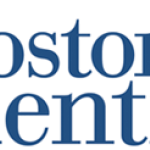- Industrie: Medical devices
- Number of terms: 4454
- Number of blossaries: 0
- Company Profile:
Boston Scientific Corporation develops, manufactures, and markets medical devices used in various interventional medical specialties worldwide.
A device for measuring acceleration. In pacing, used as a sensor in adaptive-rate pacemakers to measure body motion or movement.
Industry:Medical devices
Either of two large veins that return blood to the right atrium of the heart. The superior vena cava returns blood from the head, neck and chest; the inferior vena cava returns blood from the legs and abdomen.
Industry:Medical devices
A pacemaker or defibrillator lead with a screw-like mechanism at the tip that attaches the lead to the inner surface of heart.
Industry:Medical devices
One of the two lower chambers of the heart. The right ventricle sends unoxygenated blood to the lungs, and the left ventricle passes blood carrying oxygen to the rest of the body. The ventricles are the main pumping chambers of the heart and they contract at the same time.
Industry:Medical devices
A very fast, irregular heartbeat that is caused by abnormal impulses coming from several areas of the heart. These abnormal impulses take over the natural pacemaker function of the S-A node. The heartbeat is so fast that the heart does not have time to pump enough blood to the brain and body tissue, which may cause unconsciousness, cardiac arrest, and death.
Industry:Medical devices
Chest pain caused by an inadequate supply of blood to the heart.
Industry:Medical devices
An implantable lead designed for use in or on the ventricle.
Industry:Medical devices
An X-ray image of blood vessels or of chambers of the heart that shows the course of a special fluid, called a contrast medium or dye, injected into the bloodstream.
Industry:Medical devices
A fast heartbeat caused by abnormal impulses coming from a single area of the heart. These abnormal impulses take over the "pacemaker" function of the S-A node. The rapid heartbeat can produce symptoms of fainting, dizziness, weakness, blind spots, and potentially, unconsciousness and cardiac arrest.
Industry:Medical devices
